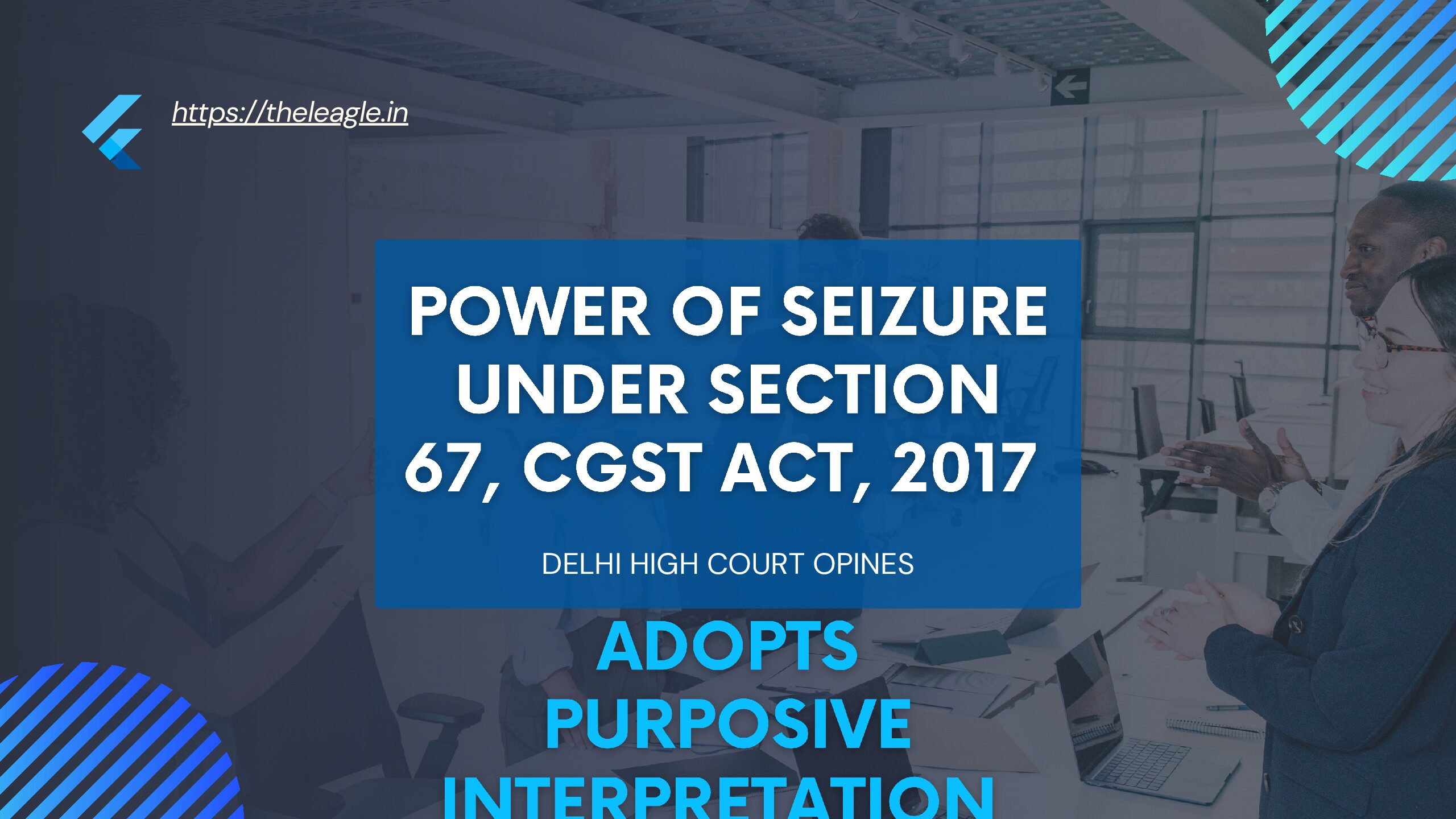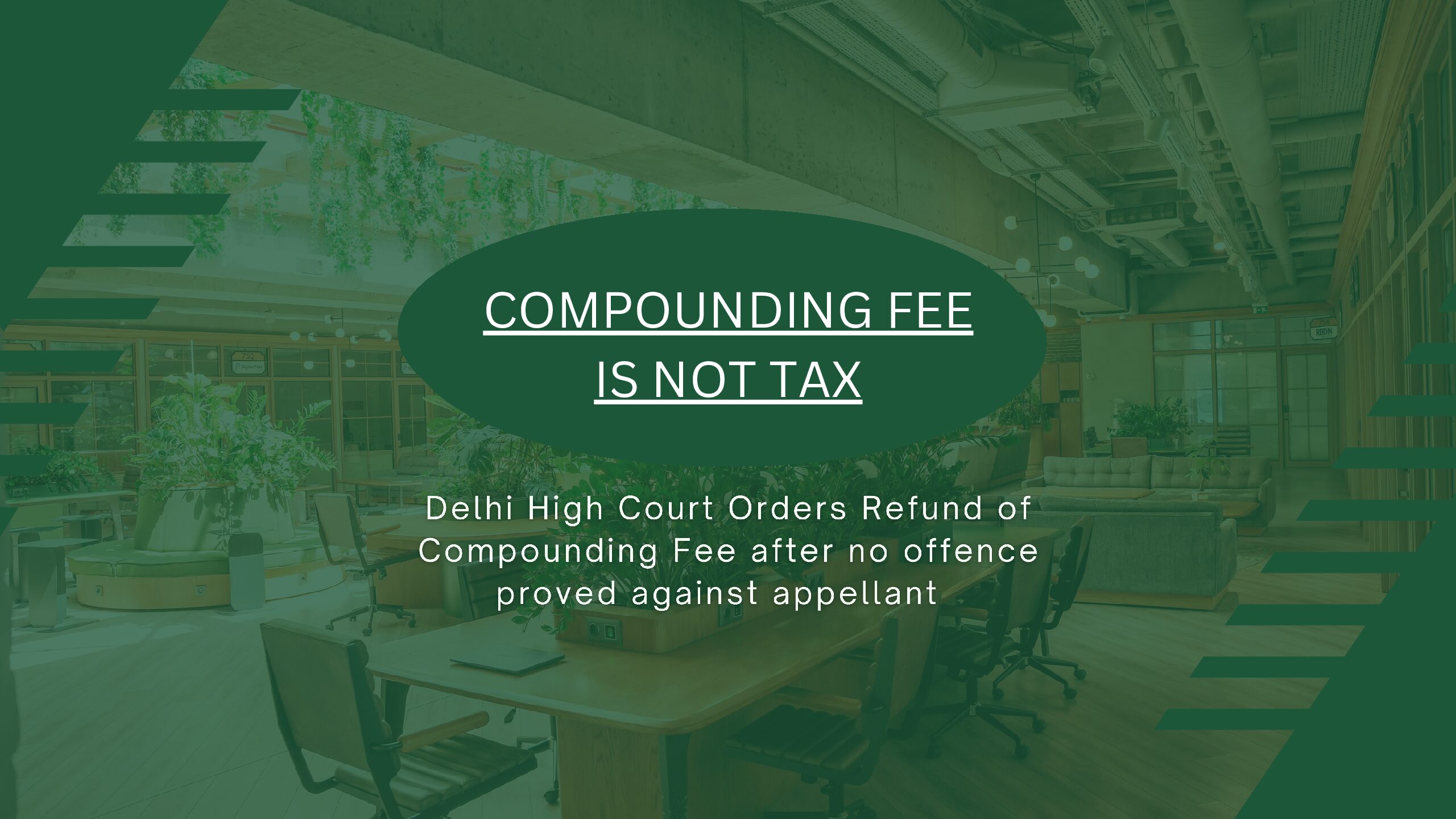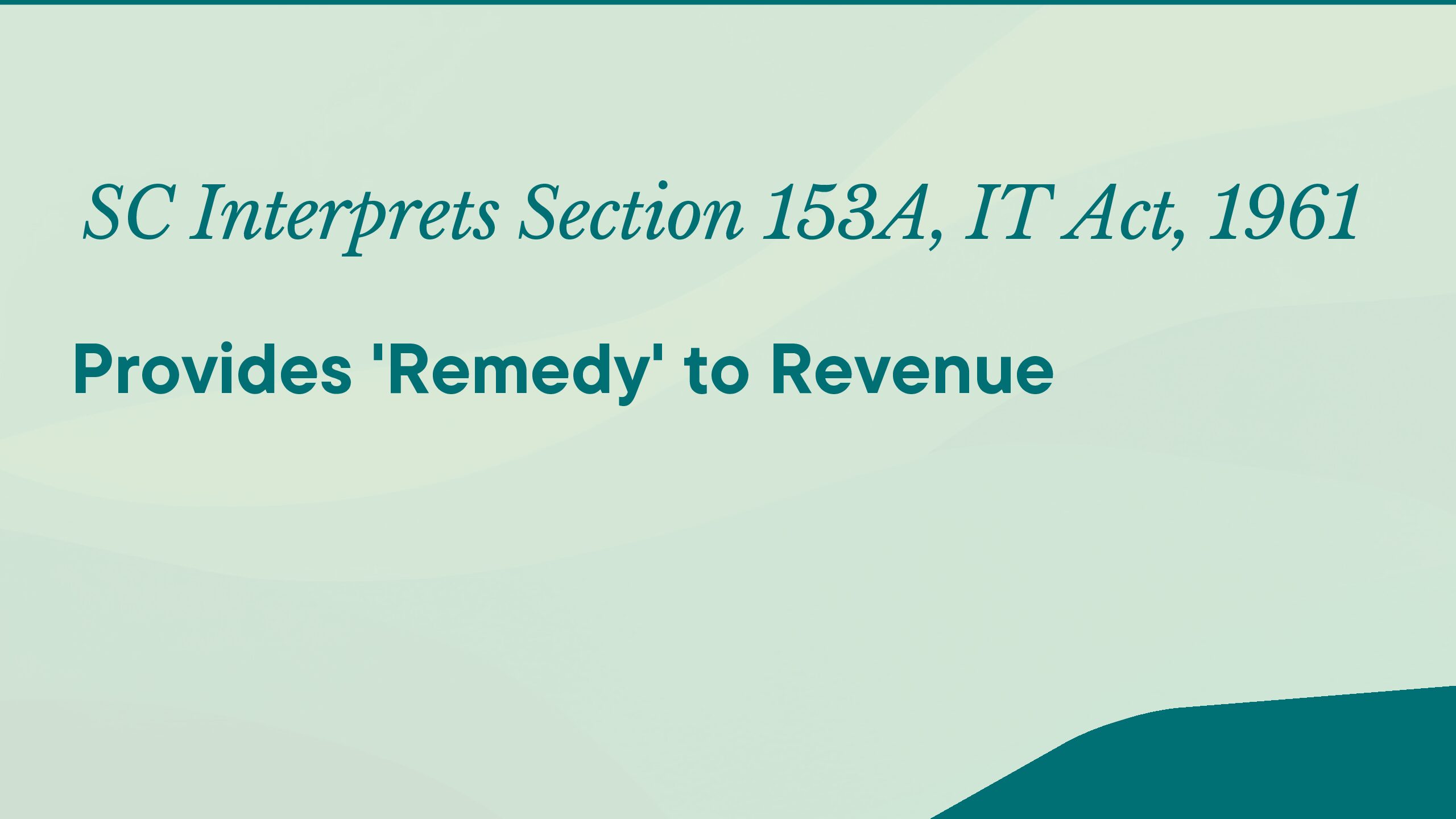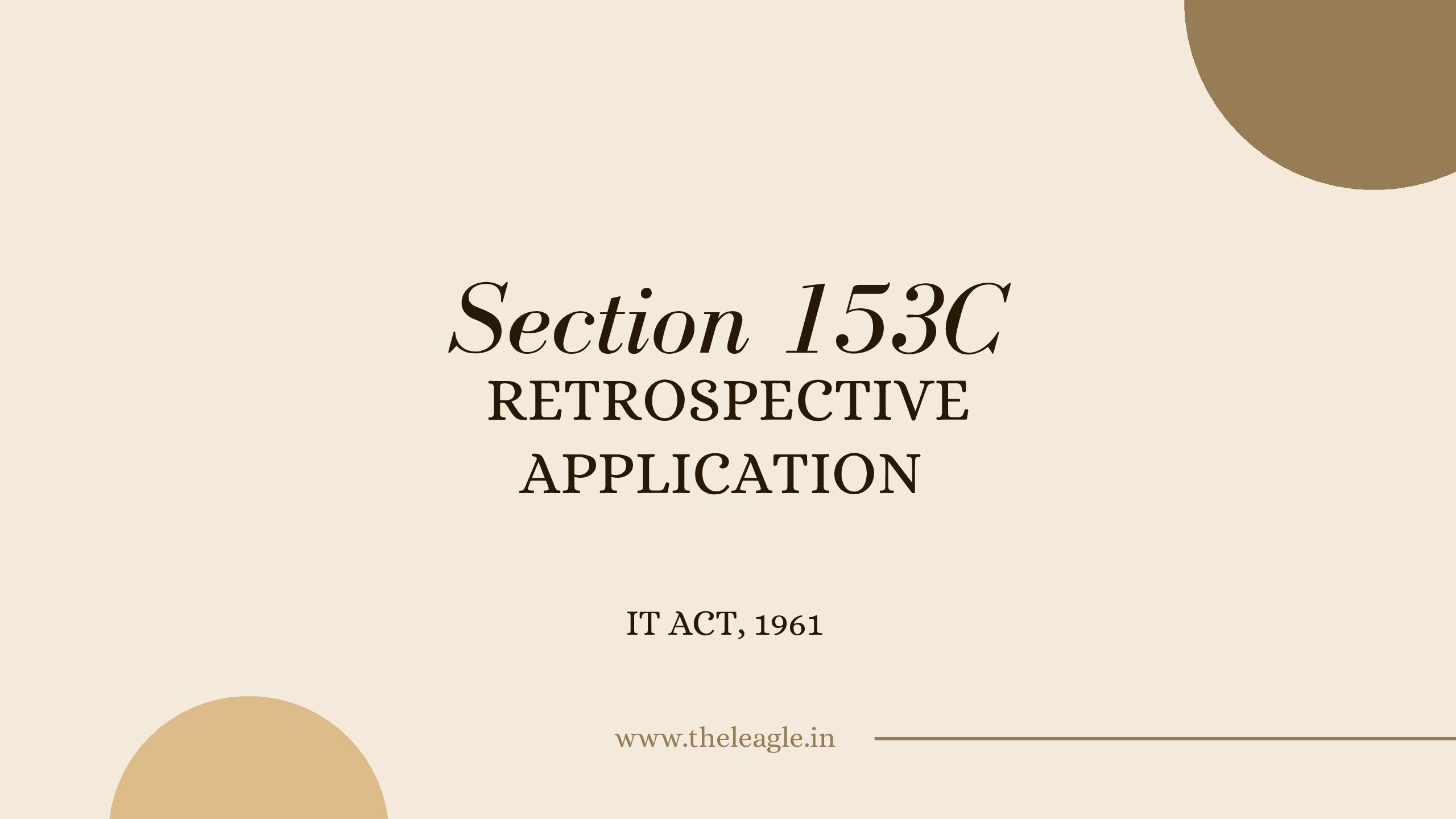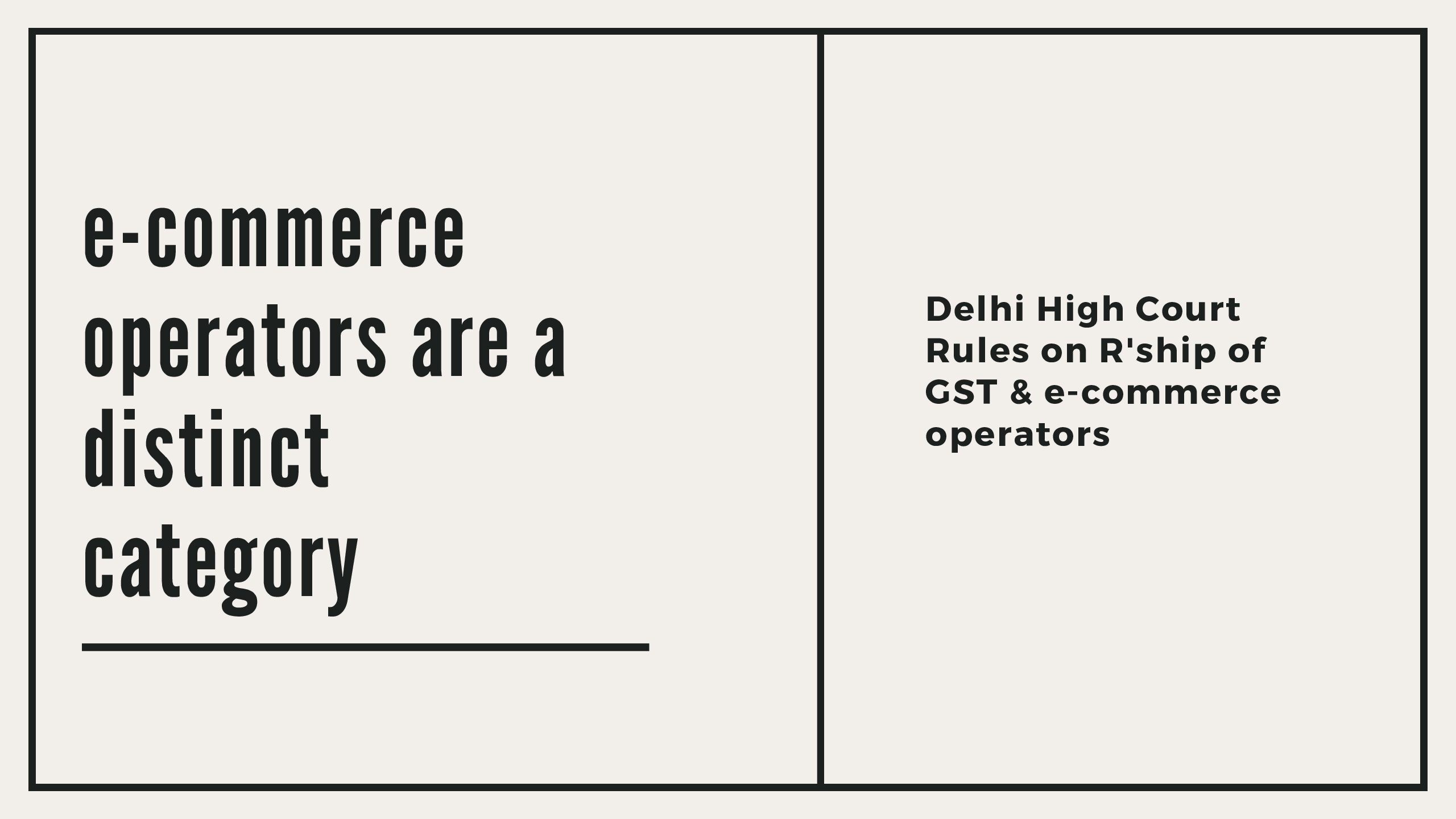In a recent judgment[1], the Delhi High Court clarified scope and power of the Revenue officials under Section 67, CGST Act, 2017. The High Court adopted a purposive interpretation of the provision to state that the Revenue’s power to seize things cannot be interpreted liberally. Instead, the word ‘things’ used in Section 67 needs to be interpreted by applying the principle of ejusdem generis. And also in interpreting Section 67 it was important to note that it was not a machinery provision for recovery of tax.
Introduction
The petitioner approached the Delhi High Court praying that the Revenue Department release silver bars, mobile phones and currency seized from its premises. The primary arguments of the petitioner for release of the aforesaid things were: first, that the notice issued under Section 74, CGST Act, 2017 and the demand raised therein did not refer to any of the aforementioned things; second, that since no notice was issued within six months of the seizure of goods, the seized goods were liable to be restored.
Before delving into the observations of the Delhi High Court, it is important to cite the two relevant sub-sections of Section 67. Section 67(2), CGST Act, 2017 states as follows:
Where the proper officer, not below the rank of Joint Commissioner, either pursuant to an inspection carried out under sub-section (1) or otherwise, has reasons to believe that any goods liable to confiscation or any documents or books or things, which in his opinion shall be used for or relevant to any proceedings under this Act, are secreted in any place, he may authorise in writing any other officer of central tax to search and seize or may himself search and seize such goods, documents or books or things:
Provided that where it is not practicable to seize any such goods, the proper officer, or any officer authorised by him, may serve on the owner or the custodian of the goods an order that he shall not remove, part with, or otherwise deal with the goods except with the previous permission of such officer:
Provided further that the documents or books or things so seized shall be retained by such officer only for so long as may be necessary for their examination and for any inquiry or proceedings under this Act. (emphasis added)
And Section 67(7), CGST Act, 2017 states as follows:
Where any goods are seized under sub-section (2) and no notice in respect thereof is given within six months of the seizure of the goods, the goods shall be returned to the person from whose possession they were seized: Provided that the period of six months may, on sufficient cause being shown, be extended by the proper officer for a further period not exceeding six months.
Decoding Section 67, CGST Act, 2017
The Delhi High Court observed that Section 67(2) makes it amply clear that only those goods can be seized which are liable for confiscation. Thus, confiscation of documents or books or things is permissible if in the opinion of proper officer they shall be useful or relevant to any proceedings under the Act. The High Court then opined that it would not be apposite to construe the term ‘things’ mutually exclusive from the term ‘goods’ used in Section 67(2) and the term goods relates to goods which are subject matter of supplies that are taxable under the Act. As per the High Court:
The word ‘goods’ as defined under Sub-section (52) of Section 2 of the Act is in wide terms, but the said term as used in Section 67 of the Act, is qualified with the condition of being liable for confiscation. Thus, only those goods, which are subject matter of or are suspected to be subject matter of evasion of tax. (Para 34)
The second category – ‘documents or books or things’ – are liable for confiscation only if the proper officer believes that they are useful or relevant to any proceedings under this Act. The latter requirement is clear and express under Section 67, but the question that required adjudication was the scope of the term ‘things’ and by extension the width of the Revenue’s power of seizure. The Delhi High Court adopted a prudent interpretive approach and observed that:
It is clear from the Scheme of Section 67 of the Act that the word ‘things’ is required to be read, ejusdem generis, with the preceding words ‘documents’ and ‘books’. It is apparent that the legislative intent of using a wide term such as ‘things’ is to include all material that may be informative or contain information, which may be useful for or relevant to any proceedings under the Act. (para 46)
The Delhi High Court observed that ‘things’ would include devices, computers, etc. that may be used for storing information that may be useful or relevant to the proceedings. The High Court refused the Revenue’s contention that the term ‘things’ should be interpreted to include anything that may or may not be relevant to the proceedings under the Act. There are three distinct reasons for the High Court’s restrictive interpretation of the term ‘things’: first, the rule of ejusdem generis; second, the context of Section 67(2) that requires the proper officer to only confiscate things that are relevant or useful for proceedings under the Act; third, in the High Court’s own words:
It is necessary to bear in mind that power of search and seizure is a drastic power; it is invasive of the rights of a taxpayer and his private space. Conferring of unguided or unbridled power of this nature would fall foul of the constitutional guarantees. It necessarily follows that such power must be read as circumscribed by the guidelines that qualify the exercise of such power, and the intended purpose for which it has been granted. (para 47)
The purposive interpretation of Section 67 led the Delhi High Court to conclude that even if the petitioner could not provide any evidence of purchase of silver bars or account for the cash in his possession, the same is not liable to be seized under Section 67(2), CGST Act, 2017. The High Court observed that seizure of unaccounted wealth is covered by the Income Tax Act, 1961. While Section 67 is merely a compliance provision aimed to aid the proceedings under the CGST Act, 2017 and the legislative intent behind Section 67 is clear: it does not permit seizure of currency or valuable assets merely on the ground that they represent unaccounted wealth.
Conclusion
The Delhi High Court’s impugned judgment is a good example of careful, strict, and purposive interpretation of the provisions of a tax statute. The provision in question – Section 67, CGST Act, 2017 – provides expansive and intrusive powers to the revenue officers to seize goods and other relevant documents, and it was crucial to underline the said powers are not without limits. The High Court carefully underscored the intent of the provision, its context and the limitations in-built in the provision to clearly decide that the confiscatory and seizure powers need to be exercised with proper caution and not in an unbridled manner. The judgment, if adhered to in true spirit, will be effective in reigning the Revenue’s certain adversarial and intrusive actions that tend to cross the statutory limits.
[1] Deepak Khandelwal v Commissioner of CGST, Delhi West & Anr (2023) 8 TMI 1263.
